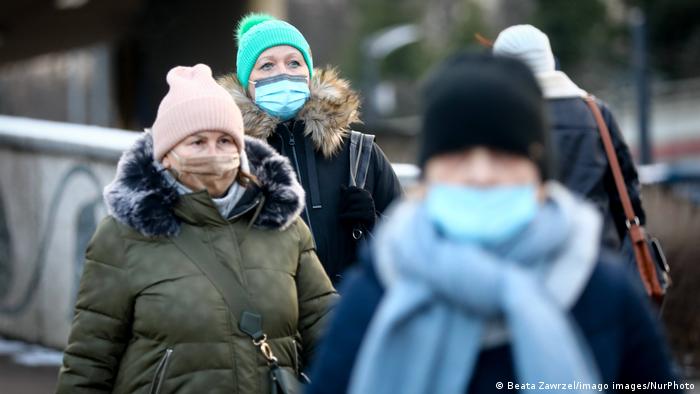
European Union officials and health experts urged governments on Friday to step up measures to curb an expected spike in COVID-19 infections this winter.
The urging comes after the EU's medicines agency approved vaccines from Moderna and BioNTech-Pfizer that have been updated to tackle the omicron subvariant.
What are countries being asked to do this winter?
The European Commission published a set of concrete measures and strategies for national governments to adopt as the 27-member bloc heads into autumn and winter.
The measures include prioritizing adapted booster shots for higher-risk population groups, as well as trying to close coverage vaccination gaps for those who have not yet received a full dose or first booster — particularly among children who are now eligible for the jab.
Countries have also been urged to maintain vaccination capacities by either reactivating vaccination centers or having general practitioners administer jabs.
While many restrictions concerning wearing face masks in public have been rolled-back, the Commission "strongly encouraged" governments to ensure their use in specific settings, such as public transportation.
What about new variants?
The Commission, the executive arm of the EU, said the spike in cases over this summer "reminded us very clearly that the pandemic is not yet over."
As more activities move indoors and children return to school in the cooler months, the potential for spreading the virus increases. Furthermore, the Commission said changes in behavior due to pandemic fatigue and the lifting of restrictions could have an impact as well.
"These factors make it easier for the virus to circulate rapidly in the EU and this opens the door to new variants emerging that could evade immunity, spread more easily or cause more severe disease," the Commission cautioned.
The European Medicines Agency (EMA) also cautioned that further coronavirus variants could be on the horizon, but that existing vaccines will still protect people.
"There might be a completely new variant emerging that we are not able to predict today," EMA vaccines chief Marco Cavaleri told a press conference on Friday.
He urged people not to wait for specific vaccines that have been adapted for the now-dominant omicron strain.
"The original vaccines are still able to protect against severe COVID-19 disease and death," even if they are less effective than the new jabs at preventing infection.
The EU says over 2,300 people across the bloc are still dying every week due to coronavirus infections.